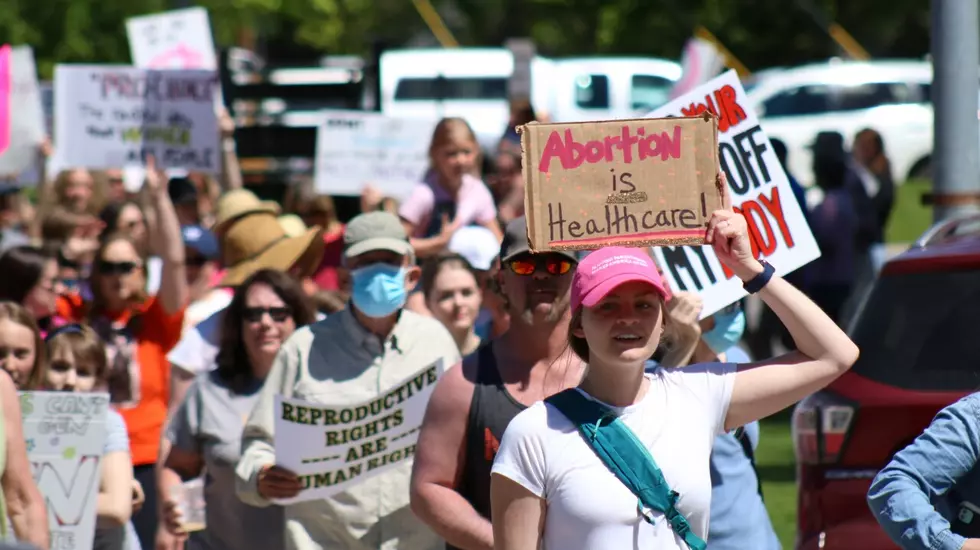
Advocates look to amend Montana Constitution to guarantee abortion
Jonathan Ambarian
HELENA (KPAX) — If advocates are successful, Montana voters may have a chance next year to decide whether access to abortion should be specifically protected in the state constitution.
A proposed constitutional amendment, backed by Planned Parenthood Advocates of Montana, would add language to the Montana Constitution.
The wording would establish “a right to make and carry out decisions about one’s own pregnancy, including the right to abortion.”
“We know that most Montanans really value the right to make personal, private medical decisions of all kinds, including about abortion,’ said Christopher Coburn, a spokesperson for Planned Parenthood Advocates, a political and advocacy organization partnered with Planned Parenthood of Montana.
Supporters submitted the proposed measure to the Montana Secretary of State’s Office last month.
Its text says the right to abortion “shall not be denied or burdened” except for a compelling government interest that “clearly and convincingly addresses a medically acknowledged, bona fide health risk.”
It would allow the government to regulate abortion after fetal viability – when a doctor believes a fetus could likely survive outside the uterus – but not to deny or burden an abortion when needed to protect a patient’s life or health.
The proposed language would also forbid the government to “penalize, prosecute, or otherwise take adverse action against someone” based on their pregnancy outcomes or for “aiding or assisting” someone else in exercising the rights in the amendment.
Abortion access in Montana didn’t change after the U.S. Supreme Court’s 2022 Dobbs decision, which overturned Roe v. Wade.
That’s because of the Montana Supreme Court which ruled in the 1999 Armstrong case that the state constitution’s right to privacy gave women the right to an abortion before fetal viability.
Despite the Armstrong precedent, Coburn said advocates believe the right to abortion in Montana has been under attack.
This year, legislative Republicans passed and Gov. Greg Gianforte signed a number of bills aimed at restricting abortion access and the use of taxpayer money for abortions.
“The truth is that politicians continue to overstep and try and cut away and tear down that precedent and those rights,” Coburn said. “So we feel – as do, we think, the majority of Montanans – that that right to abortion should be enshrined in the Constitution.”
Republican elected officials, including Gianforte and Attorney General Austin Knudsen, have called on the Montana Supreme Court to reverse the Armstrong precedent, arguing it was wrongly decided from the beginning.
However, justices have reiterated their finding in rulings as recent as this May.
Planned Parenthood and other plaintiffs have challenged several of the new abortion-related laws in court, citing the Armstrong decision, and state judges have put some of them on hold.
“Politicians are keeping us in court; they're keeping us at the Supreme Court, at the district-level courts to protect a right that all Montanans deserve and most Montanans want,” said Coburn. “And so we feel, and we know, that by putting the right to an abortion in the hands of Montana voters to enshrine that right, that we will spend less time in the courtroom debating whether or not people have access to abortion and be able to actually secure that right for generations to come.”
In a series of ballot measures across the country over the last two years, voters have generally approved adding abortion rights to their state constitutions and rejected attempts to amend constitutions to say they don’t guarantee abortion access. That includes several Republican-leaning states, like Kansas, Kentucky and Ohio.
There’s still a long process before this measure might go before Montana voters.
Knudsen’s office is currently reviewing it and will make a ruling on whether it meets state legal requirements and whether to allow it to go forward.
Earlier this year, they blocked two other proposed constitutional amendments that they found violated Montana’s rule against a single amendment making multiple unrelated changes — though the Montana Supreme Court overturned that ruling for one of the proposals.
If the proposed amendment clears legal review, supporters could begin collecting signatures to qualify it for the November 2024 ballot.
It would take more than 60,000 signatures from registered voters — 10% of the total number of votes cast in the 2020 election for governor, both statewide and in 40 of Montana’s 100 legislative districts.
“We're not there in the process yet, but every step of this initiative and this process so far has been really well thought-out,” Coburn said. “We have a good working group of both statewide and national partners working with us at PPAMT, and if we get to the point we are cleared to collect signatures, we will roll out the plan together – all the required signatures from all the required locations – and do so in a way that is educating people and bringing people along to the campaign.”
